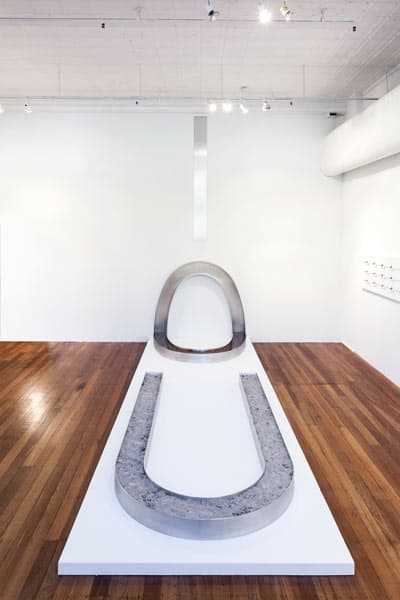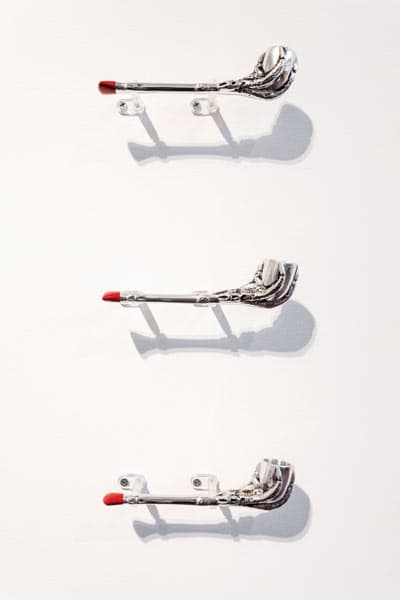
Artist:
Fiona Foley
I grew up in Hervey Bay speaking Badtjala in the family home with my extended family. My mother, Shirley Foley, published a Badtjala Dictionary in 1996. Our traditional boundaries included Fraser Island, Double Island Point, Tin Can Bay, Bauple Mountain and north to the mouth of Burrum Heads. This knowledge was imparted in everyday conversations and through Wilf Reeves’ The Legends of Moonie Jarl (1964).
My earliest interactions with ‘outsiders’ were at the primary school I attended at Urangan, where I intuitively sensed a point of difference from other school children and my classroom teacher, who I was fearful of. They were not giviid (Aboriginal) like me. Being from the Aboriginal race meant being scrutinised by others on a daily basis and seemed to penetrate all aspects of life. It was a much larger societal embrace that I could not articulate at the time.
One of the first questions I asked as a five-year-old child was, ‘Why aren’t there any giviid people living on Fraser Island anymore?’ By chance, the answer to that question came in 1984 when I was in my first year at Sydney College of the Arts and read CD Rowley’s publication The destruction of Aboriginal society (1970). This described the intentional state violence that was carried out toward Queensland Aboriginal populations over 62 years.
Ever since then, the unravelling of race relations in Queensland has been of interest to me, and over the decades I’ve largely been self-taught due to our frontier history not being taught in school or tertiary curricula. Subsequently, I’ve also learned that there were layers of action and counter-action to subjugate a group of people based on race.
Portrait: Mick Richards, Photos courtesy Andrew Baker Art Dealer and Niagara Galleries

Fiona Foley
(Badtjala people)
I.O.U. 2016
Courtesy of the artist and Andrew Baker Art Dealer.

Fiona Foley
(Badtjala people)
Pontificate on This 2016
Purchased 2017 in recognition of the 50th Anniversary of the 1967 Referendum
Search for works by this artist in the national collection.

Fiona Foley (Badtjala people)


